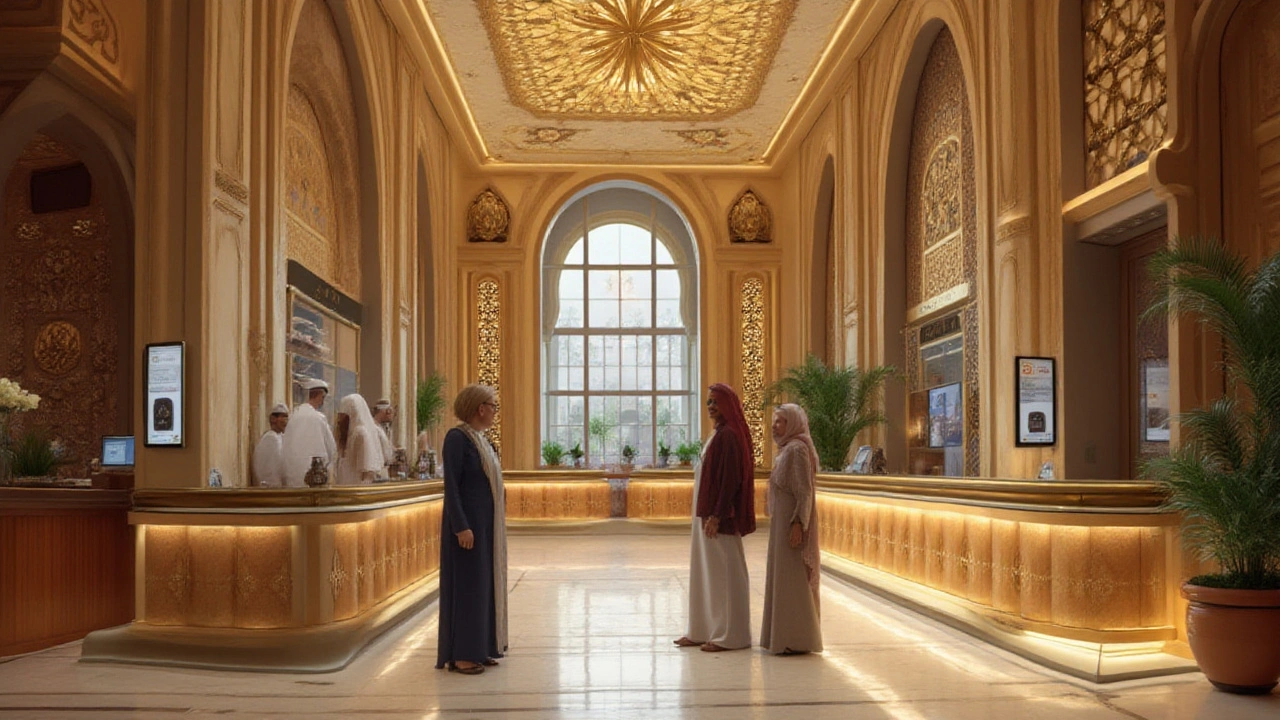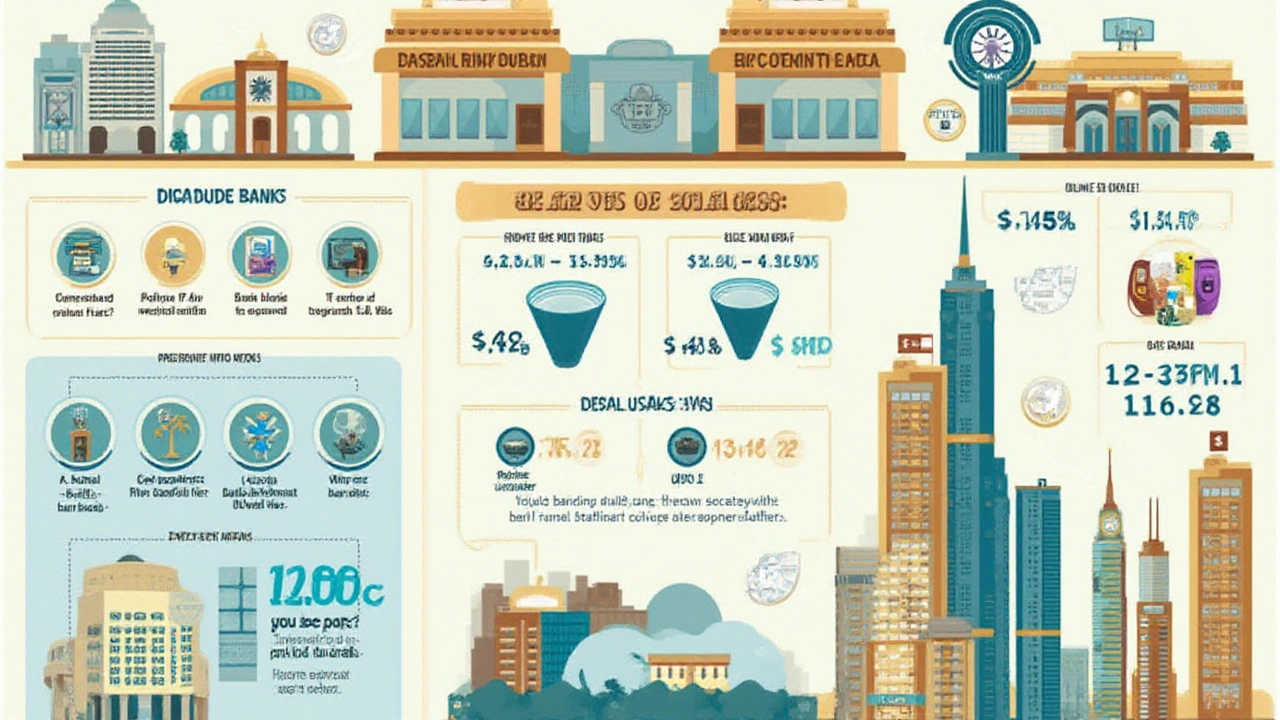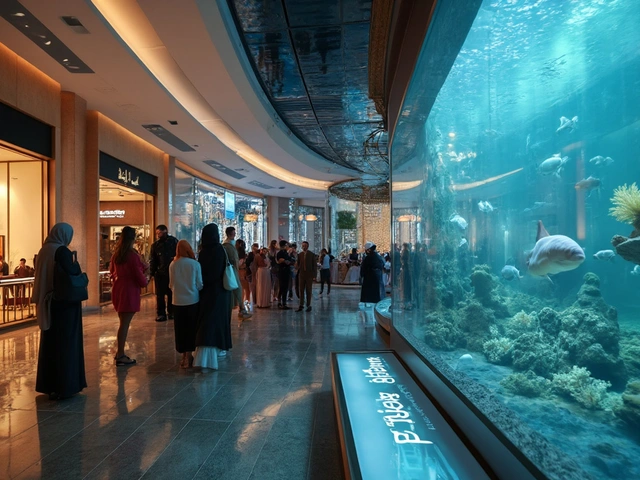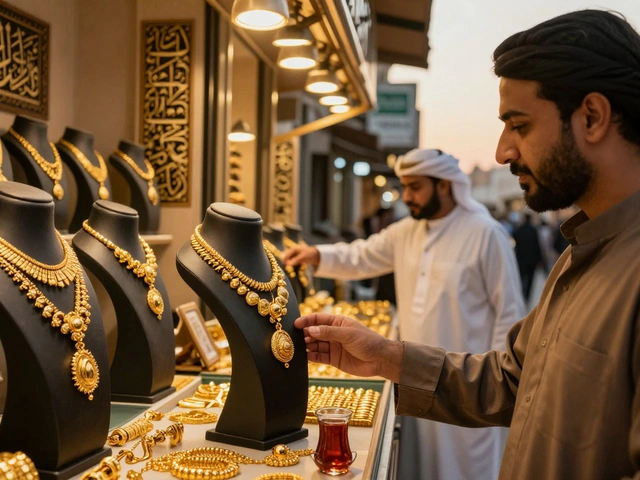Ever try opening a bank account as a foreigner, only to feel like you’re stuck in an endless game of financial ping-pong? In Dubai, the excitement of city lights and sky-high ambition meets a seriously savvy banking industry—one that loves expats but can still be a maze if you’re new. The rules aren’t scary, but they do ask for details, some patience, and the right paperwork. Ready to unlock smooth banking?
What Foreigners Need to Know About Banking in Dubai
Dubai’s banks are obsessed with order and speed, but there’s still a dance to learning their rhythm. Let’s get one thing out of the way: you can open a bank account as a foreigner. The catch? Not every bank or every account is open to everyone. Think of it like shopping for shoes—you have to find the right fit. International banks like HSBC Middle East, Standard Chartered, and Citibank are popular, but local powerhouses like Emirates NBD, Mashreq, and ADCB often give you more flexibility for day-to-day transactions, local apps, and Arabic language support (if you need it).
Here’s an interesting twist: You don’t need to be a resident to open some non-resident accounts, though you’ll get more features and lower fees once you have your Emirates ID (that plastic card everyone seems to guard with their lives). Banks do regular promotions for new customers. Last year, Emirates NBD grabbed attention by waiving monthly charges for six months—if you moved in with your salary. Not a bad welcome, right?
Most banks will ask for your passport, a UAE visa (even if it’s just a visit visa for tourist or non-resident accounts), Emirates ID or at least proof you’ve applied for one, a local address (yes, Airbnb receipts can work in a pinch), and sometimes a letter from your employer or university. Sounds heavy? It’s not too bad. The key is: keep copies on your phone, and never underestimate the power of a friendly smile at the branch.
Local news in 2025 buzzed about new digital banks, like Liv. by Emirates NBD and Mashreq Neo, stealing the limelight—no branches, just an app, with English-first interfaces built for mobile-first expats. They cut the paperwork down and sometimes let you start your application before your residency is even approved. Money-lovers like me can’t get enough of the rewards points and cashback on everything from taxi rides to dinner. And if you’ve got a story about endless international transfer headaches, relax: more banks are now offering free instant transfers between the UAE and more than 15 countries. No more late-night fretting over rent payouts!
Want proof foreigners matter in Dubai banking? The Central Bank’s 2024 report found that expats hold over 70% of all personal bank accounts in the city. So, yeah, banks want your business. Smart expats weigh their choices: do you want a fancy account with premium lounges and global concierge, or do you just want easy, fee-free ATM access and clear online statements? The hottest tip: start your account search before you even fly out—many banks let you book an appointment or reserve an account number online.
Here’s a pro move you’ll want: if you’re planning to bring in money from your home country, or send cash back, check the bank’s exchange rate margins and transfer fees carefully. Some digital banks like Wise (formerly TransferWise) and Revolut now work seamlessly with UAE bank accounts for transfers, but traditional banks may charge both incoming and outgoing wire fees. Nobody likes surprise charges. If you’re coming from countries like India, the UK, or the Philippines, special “remittance-friendly” accounts by Al Ansari Exchange and ADCB are designed to make international transfers nearly instant, with minimal fuss.
"Dubai’s banking sector is transforming rapidly. Expats can enjoy world-class convenience, but personal research is still vital," says Marcus Lemière, a regional finance analyst for Reuters Middle East.
Since rules change fast, always check the current requirements on the bank’s site before committing. Bring every possible document you can imagine—if they don’t want it, you can always laugh it off with your new banking officer. A little charm and organization go a long way.
| Bank Name | Minimum Deposit | ATM Access | Best For | Monthly Fee |
|---|---|---|---|---|
| Emirates NBD | 1,000 AED | 900+ ATMs UAE-wide | Salary accounts, expat families | None with salary transfer |
| Mashreq Neo | 0 AED | Free at Mashreq & partners | Digital-only, young expats | 0 AED |
| HSBC Middle East | 10,000 AED | Global ATM network | Frequent travellers, premium users | 250 AED (waived for priority accounts) |
| Standard Chartered | 3,000 AED | UAE & international | International banking, freelancers | 26.25 AED |

Choosing the Right Bank as a Foreigner in Dubai
Picking a bank in Dubai as a foreigner is kind of like dating—you want easy communication, no weird fees, and zero drama. Your first step: do you want a traditional bank with branches on every corner, or is an online-only option (with zero paperwork) more your style? Traditional banks, like Emirates NBD and Abu Dhabi Commercial Bank (ADCB), give you a physical place to run to in case anything goes wrong, which can feel reassuring if you’re a newcomer. They’re often best for those moving with a family or with large, regular salary payments.
Digital banks like Liv. or Mashreq Neo are catching up fast. They don’t have cozy waiting rooms, but your setup can be done in under 15 minutes, sometimes just with your passport, visa, and Emirates ID photo uploaded via your phone. I actually opened my own Mashreq Neo account while waiting for a coffee at Mall of the Emirates—no joke.
One fact most people miss: Banks here don’t love big cash deposits without explanation, so always be ready to show source-of-funds if you transfer large sums from abroad. It’s partly about anti-money laundering laws, but also keeps your banking stress-free if anyone asks later.
For freelancers or digital nomads, Standard Chartered and Commercial Bank of Dubai have tailored accounts that play nicely with foreign income streams. For business accounts, you’ll need a valid trade license and extra paperwork, but the speed and digital signature options have made things easier than ever by 2025.
Fees and charges can feel like a hidden minefield. Many basic accounts are free WITH a salary payment (usually above 5,000 AED/month). If you want multi-currency options, HSBC and Citibank shine. They offer accounts in USD, GBP, and EUR—perfect if your salary comes from Europe or the US.
“Golden” expat accounts, like those at First Abu Dhabi Bank or Mashreq Gold, offer perks like airport lounge access, personal bankers, free international debit cards, and even movie discounts. But let’s be honest, for many, the main concern is no monthly fees, English-speaking service, and instant account management from anywhere. If you’re single, traveling, or switching jobs often (hello, hospitality industry), flexibility trumps everything.
Banks in Dubai are obsessed with their apps. In a survey last year by Gulf News, 85% of expats said their main way of banking is now via mobile. Check what features each app has—can you get customer support in English 24/7? Does the ATM network work across the UAE? Are there any sneaky fees for withdrawing in another emirate or for international use?
Don’t forget about transfer limits. Most banks cap instant transfers at 100,000 AED per day for personal accounts, and up to 500,000 AED for priority clients. Need to make a big payment? You may have to pop into a branch or call ahead (yes, they still want to see you sometimes).
If you’re pooling money for rent or bills with friends, digital banks let you create “shared accounts” or sub-accounts for group expenses. Trust me, it saves so many headaches when living with roommates.
- Ready to switch your salary? Ask your employer if they have preferred bank deals—some companies cut you a break on paperwork and get priority service (my spouse, Caius, did this and had his account up in 24 hours).
- Check welcome offers—some banks give you reward points, free insurance, or movie tickets just for opening an account and setting up a credit card.
- Stay organized: keep your Emirates ID valid at all times. Banks freeze accounts if the ID expires—it happens more than you think!
- Review international wire transfer policies—if you travel or invest abroad, make sure your bank can support it quickly and affordably.
The right bank makes everything smoother—your salary, rent, even urgent cash transfers back home. Pros do their research, ask blunt questions at the branch, and don’t let shiny marble lobbies rush their choice.
| Feature | Traditional Bank | Digital Bank |
|---|---|---|
| Branch Access | Yes, all over Dubai | No |
| Account Opening Time | 1-5 days, depending on queue | 15-30 minutes |
| Monthly Fees | Zero with salary OR 25-100 AED | Usually zero |
| English-language App | Yes | Yes |
| International Transfers | Yes, sometimes higher fees | Yes, usually fast & cheap |

Everyday Banking: Fees, Safety, Tips, and UAE Expat FAQ
Unexpected fees are the quickest way to sour a banking experience in Dubai. Many expats are caught off guard with account maintenance charges if their balance dips below a set minimum (like 3,000 AED). Tip: set up automatic deposit reminders in your banking app so you’re never surprised. Another biggie? Out-of-network ATM withdrawals can cost up to 10 AED a pop. Stick to your bank’s machines or partners.
Your safety is serious business here. The UAE’s banks rank in the world’s top 20 for digital security (source: BIS 2024 Global Security Report), and all offer robust two-factor authentication and chip-and-pin cards. If you run into problems—maybe you lost your card at a brunch—call your bank’s emergency hotline, and your account will be frozen in minutes. For added peace of mind, some digital banks even let you freeze and unfreeze cards instantly in the app.
What about Islamic banking? It’s big here, and not just for Muslims. Sharia-compliant banks like Dubai Islamic Bank and Emirates Islamic Bank often have attractive profit-sharing rates instead of interest, and English-speaking support. Curious expats sometimes pick these for better savings/returns—but you trade in traditional credit cards for Sharia-compliant alternatives.
Let’s talk about language and service. Nearly every bank has a 24/7 English call center, and account statements are provided in English by default. If you’re new, branch staff are friendly but can be busy—weekday mornings (not weekends!) are usually quietest for paperwork.
If you’re a digital nomad or visitor, non-resident accounts are available but stricter. You’ll almost always need to present proof of overseas address and have your UAE contact details ready. Expect larger minimum balances, often 10,000 AED or more, and slightly higher international fees. But you at least get full access to online banking, debit cards, and transfers.
Let’s break down key questions foreigners usually have about Dubai banking:
- Do I need a residency visa to open an account? For most accounts, yes. But digital banks and some traditional ones have literally opened “expat welcome” accounts for new arrivals and tourists. The rules are looser if you only want a basic debit card and no loans or credit.
- Can I open a joint account? Yes. Many expat couples, like Caius and I, have joint accounts for rent and savings. Check whether your partner also has a residency visa, as this speeds things up.
- How do I transfer money internationally? You can use your bank, but for best exchange rates, many prefer digital specialists like Wise or Revolut. UAE Exchange and Al Ansari Exchange are mainstays and have branches everywhere.
- What is the minimum income needed? Most banks want to see at least 5,000 AED/month for full-featured current accounts. Saving and salary-transfer accounts may have lower or no minimums.
- Are foreign currency accounts available? Yes! HSBC, Citibank, ADCB, and Standard Chartered offer USD, GBP, EUR, and even INR accounts for salary and transfers. Handy for travelers or freelancers paid from abroad.
- Can I get a credit card as a foreigner? As soon as you have a valid Emirates ID and proof of income, yes. Usually, you’ll get a credit card offer within days of account opening—just watch the fees!
Banks in Dubai are in a constant race to win over expats with smarter online tools, better English support, and lower fees than ever. Ready to make the leap? Choose wisely, compare what matters most to you, and enjoy the peace of mind that comes with a world-class banking experience abroad. Your expat adventure deserves nothing less!








leslie levin
August 2, 2025 AT 14:41Wow, this guide is exactly what I needed! 😍 Moving abroad is hard enough without stressing about banking stuff, right? I’ve heard that some banks in Dubai are super picky about expat accounts, so having a list like this is a lifesaver.
One thing I’m curious about: does the guide mention which banks offer the best online banking apps? Because honestly, I’m all about managing my money from my phone. Also, do they talk about minimum deposits? Would love to avoid banks that require huge deposits upfront!
Thanks for sharing this! Can’t wait to dive into the actual article and get some solid tips before my move next month 🚀
Gordon Kahl
August 6, 2025 AT 05:07Oh sure, the "best" banks for foreigners in Dubai... because banks are known for being so welcoming and not confusing at all, right? 🙄 Honestly, I bet half of these 'top banks' just want your cash and will make opening an account a bureaucratic nightmare. It’s like you need a PhD to get a debit card over there.
But hey, at least this article might give you some insight on where to start burning your patience. Because no expat can survive without some banking drama in Dubai, that’s just the law of the land.
Anyone else think we should just carry cash and avoid this mess altogether? Smh.
Laura Fox
August 8, 2025 AT 01:37Respectfully, I would argue that calling any specific set of banks the 'best' is an oversimplification that does not adequately represent the complex financial landscape tailored to expatriates in Dubai.
Factors such as varying fees, account restrictions, integration with international banking networks, and the presence or absence of personalized customer support must be critically evaluated. Additionally, the article should emphasize the bureaucratic processes, documentation requirements, and regulatory compliance that may disproportionately affect non-resident applicants.
Undoubtedly, the guide serves as a helpful primer; however, a nuanced approach to selecting banking institutions is essential for truly informed decision-making.
Olivia Pang
August 9, 2025 AT 09:04First off, I find it utterly perplexing that so many articles on expat banking in Dubai seem to trivialize the labyrinthine documentation required. One would anticipate a lucid and comprehensive enumeration of mandatory proofs (residency visas, salary certificates, etc.), yet these are frequently glossed over.
Moreover, I implore the authorial entities to adhere to grammatical precision in their advisories – ambiguity in procedural explanations leads to rampant misinformation.
In conclusion, while the article attempts earnestness, its jargon-lite approach undermines the complex nature of expatriate financial integration in such a cosmopolitan environment.
Lise Cartwright
August 10, 2025 AT 11:31Honestly, does anyone else feel like these 'best banks' lists are maybe just a way for the financial institutions and who knows who else to keep expats tied in with complicated fees and hidden stuff? Like, what if they’re all in on it and just picked ones that make the most from fees and not really focusing on expats’ actual needs? 🤔
Also, some banks always ask for way too much personal info. I'm super suspicious that they're sharing it or monitoring way too much. It's like, is it really just banking or is there some secret tracking system? Yikes.
Would love if this guide had info on reputations for privacy and stuff, but it looks like it just skims the surface tbh.
Erika King
August 11, 2025 AT 19:37I have to say, reading about the various banking options for expats in Dubai kind of reminded me of the quiet urgency that comes with managing money abroad. It's almost like the banks represent a kind of gateway – one that can either silently ease your transition or complicate it endlessly.
Given the hustle most of us encounter in everyday life, dealing with the intricacies of foreign banking can sometimes feel like navigating a maze wrapped in fog. It’s comforting to have something like this guide that distills that complexity into something manageable.
Still, I wonder, how frequently do these banks update their policies? Because banking conditions abroad can shift so fast that what works today might be obsolete tomorrow.
Keenan Blake
August 15, 2025 AT 04:51This guide sparked my curiosity about the integration between Dubai’s banks and international fintech systems. I’m interested in how smoothly expats can link their Dubai accounts with apps and services they use back home, especially for international transfers or payments.
Additionally, I’d appreciate insights into which banks offer the most user-friendly customer support for foreigners who don’t speak Arabic natively. After all, accessibility and communication are paramount.
Overall, the article seems very promising as a resource for future residents aiming to navigate Dubai's financial environment with confidence.
Sylvain Menard
August 19, 2025 AT 12:47Okay, folks! If you're planning your expat life in Dubai and thinking about banking options, listen up! Don't just pick a bank because it sounds fancy or 'best' on some list. You NEED to dig deep and find out about fees, charges, and if your money is safe from unnecessary BS.
One tip from me: check if the bank offers multi-currency accounts or easy currency exchange, especially if you get paid in a foreign currency. This can literally save you tons of headaches.
Also, never underestimate good customer service — you want a bank that actually picks up the phone when you need them. Seen too many people get stuck because no one helps them. So yeah, do your homework!
Sophia Sterling-Angus
August 26, 2025 AT 09:47Seriously though, I skimmed the article and it seemed like it was just repeating the same fluff we've seen a million times. Where’s the real dirt on banking hurdles expats face? Like hidden fees, the nightmare of documentation, or the ridiculous waiting times? The guide is too soft on this stuff if you ask me.
Personally, I suspect some of these banking 'recommendations' rely on partnerships that aren't declared, which kinda messes with the impartiality.
Anyway, anyone else had a horror story trying to get a bank account in Dubai? I’d be curious about the worst experiences out there.
Madi Edwards
September 1, 2025 AT 08:57Reading this made me reflect on how unexpectedly complex expat life can be, especially when dealing with something as seemingly mundane as opening a bank account. The layers of bureaucracy and the cultural nuances you have to navigate are not trivial, yet they're often overlooked in generic guides.
For me, the key takeaway is that preparation and understanding the local banking environment is crucial. Not just for convenience, but for peace of mind.
Thanks to the author for providing this comprehensive overview; it's a great starting point for those gearing up to live in Dubai.